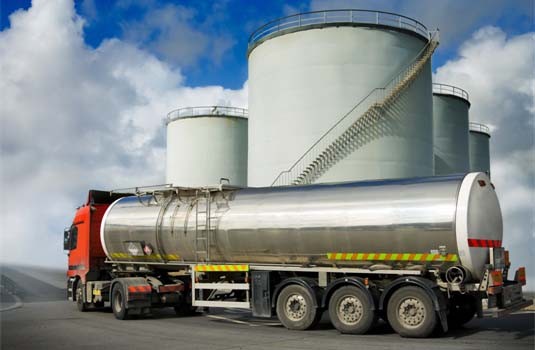Nigeria’s existing petrol crisis has deepened into a more complicated logistics crisis as trucks remain unmoved at the depots due to a pricing disagreement between the Nigerian National Petroleum Corporation Limited (NNPCL) and Dangote Refinery.
With fuel shortages persisting across the country, this logjam is leading to a lack of trucking capacity and operations, raising serious concerns from logistics providers and a broader economic standpoint.

This situation follows Dangote Refinery, the largest refinery in the country, indicating a price at which NNPCL believed was uncompetitive. This initial price disagreement delayed the loading and delivery of fuel and continued to stall fuel distribution, and concurrently lead to suspicions over a mutual agreement over the price at which fuel should be transported.
Root of the Petrol Crisis
The disagreement over pricing stems from both NNPCL and Dangote Refinery holding different positions in regard to the price of refined petrol. Dangote, after investing in a new refinery, intentionally wants to make a marginal level of profit commensurate within current international oil prices, whereas, NNPCL has concerns of the pricing of the refined petrol leading to further nuisance charges on the Nigerian consumers rationing the potential of their responsibility.
This stalemate has resulted in hundreds of trucks stranded at multiple depots, compounded by the inability to obtain fuel to complete the fuels supply chain. Transports, while expecting costs of CIA’s to consider rises associated with fuel and currency devaluation, admitted their displeasure with the out time.
A spokesman for NNPCL indicated that discussions to resolve the stalemate are ongoing, but there has been no formal resolution reached. The company reiterated its commitment to the national availability of fuel in Nigeria, and indicated that the standoff has to be resolved soon.
Broader Economic Consequences
The implications of the petrol crisis have begun to extend into other industries. Due to increased transportation costs as a result of fuel shortages, the prices of goods and services across Nigeria have increased. This is especially pronounced in the cost of basic necessities that feature logistics as a major component of the price of consumption.
Business owners in Nigeria, especially those on logistics-related businesses, all indicated their concerns with the protracted period of fuel shortages. Several logistics considerations indicated their businesses had ground to a halt or would be forced to make layoffs over continued inability to purchase fuel.
Daily consumers are reeling as petrol stations at the moment cannot keep up with demand. This was apparent in evidence by the increasing number of long lines at petrol stations and an increasing black market for fuel that has come to exist. Prices at many of these pump stations are more divergent than a regulated price with prices frequently priced far higher than the regulated price.
Indeed, the Nigerian society, martialled by the government as assured Nigerians, are taking steps to fix the outstanding issues with petrol availability. Yet, many remain skeptical, especially in light of prior fuel shortages that lingered for months.
Quick Solution Needed
NNPCL-Dangote Price disputes continue to cause fuel shortages and trucks stuck at oil depots. But the outlook remains uncertain. Some analysts argue against Nigeria’s continued reliance on imported fuel. This is despite the fact that a refinery like Dangote’s is in operation. But it also highlights systemic inefficiencies within the country’s petroleum industry…
Quick and decisive action by NNPCL and Dangote Refinery will be necessary to resolve the crisis. Stakeholders are calling on the government to intervene and mediate the price fight to avoid further economic disruption. and calls for a balanced solution.
Currently, lack of petrol supply and rising costs have put enormous pressure on an economy already struggling with inflation, unemployment and poor infrastructure.
The petrol crisis could affect millions of Nigerians. unless the dispute is resolved.
















